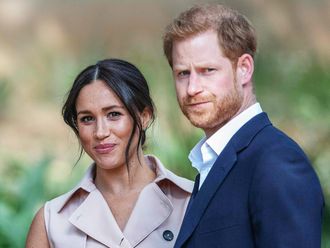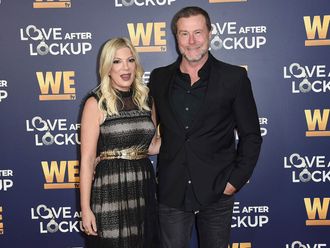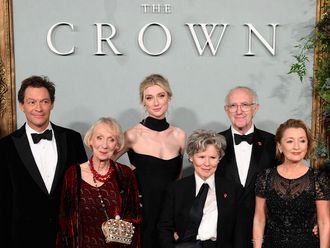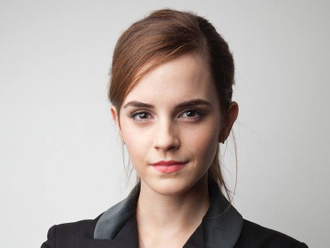Do recall that shortly before the US version of The X Factor launched back in 2011, Simon Cowell was concerned by a possible scheduling conflict. Keen to remedy it, and apparently convinced that he was too big to give way to the other party, he asked Fox to reschedule the World Series. To repeat: he asked them to reschedule the World Series.
And so to last Thursday’s episode of The X Factor USA, which pulled in a whole 3.6 million viewers. A little less than half of what Countryfile gets in Britain, certainly, and nothing like what The One Show manages and, it must be pointed out, still a shade short of the 20 million Cowell once predicted the US version of the show would command.
The omens are not encouraging. American television is a notoriously brutal marketplace, with underperforming shows taken out and shot with far less ceremony than we bleeding hearts over here would ever allow. As mentioned in this space before, a US television producer friend once told me that when he was young and green, a sitcom he had worked on had got disappointing ratings for its first episode, and he had wondered of a colleague whether it might be pulled before the end of its run. “With numbers like that,” he was told, “you’re lucky they didn’t pull it in the first commercial break.”
A couple of shows have indeed been cancelled during that first commercial break of the first episode, while plenty have never made it past their first week’s outing. A single episode of a Jackie Gleason-hosted game show was judged so bad that Gleason used the next week’s show to apologise for it. “Last week we did a show that laid the biggest bomb,” he conceded in a lengthy piece of prostration. “It would make the H-bomb look like a two-inch salute.”
Clearly, Cowell does not find himself quite in this company, though a properly hyped, televised mea culpa by Simon could surely draw stellar numbers, but the X Factor’s figures are now too atrocious to ignore. Its viewership has collapsed by 28 per cent since last year, with last week’s shocker the principal force behind Fox sinking to a historically low November primetime average.
The question is: where do we go from here? Some have raised the admittedly slim but just conceivable possibility that the X Factor USA may actually be cancelled mid-run. For a show of which Cowell had such great expectations, this really would be the ultimate humiliation. But if it has to happen, Lost in Showbiz would ideally prefer the The X Factor USA set not to be dismantled, or upcycled into the backdrop for a budget-deficit telethon or something, but preserved exactly as it was at the moment of rejection, perhaps offered as a studio tour teaching the folly of televisual hubris. It would be haunted by a Havisham-like Cowell, still in cobwebbed bootleg jeans and one cuban heel, croaking out self-reflexive putdowns such as “BO-RING!” and “That. Was. Excruciating.” Of course, the more likely possibility is that The X Factor USA is not replaced by a trusty Glee repeat, but limps along to the end of the series. But its departure from American life thereafter is now an inevitability.
Still, one person’s humiliating exit is another person’s triumphant return, and that second person is, of course, our own ITV. Remember: however obviously weakened the Karaoke Sauron’s powers clearly are, his certain return to ITV as a judge on next season’s UK X Factor will be heralded with marginally more fanfare than the Queen’s diamond jubilee. Fatted calves will be slain, or fatted teens, or whatever it is that he eats, and his return to the panel, very possibly with his former oustee Cheryl Cole, will be treated as a historic coup.
Meanwhile, perhaps the greatest sadness about Simon’s US X Factor fiasco is how crestfallen it must leave his endlessly enchanting friend Sir Philip Green. Back in 2009, you might recall, Cowell and the TopShop boss announced they were going into business partnership. The pair gave a hilariously bullish interview to GQ, in which they spoke about their vast “capability”, almost as though they were an independent nuclear state.
The sensational news, back then, was their plan to take the X Factor to a permanent home in Las Vegas. There would be two shows a week which fans could watch on pay-per-view, and they claimed to be in talks with a major Vegas venue, rumoured to be Caesar’s Palace. “We’ll have a permanent place,” declared Green. “The home of the X Factor live from Las Vegas. We’ll have a store. And it’ll be online. You’ll have 20, 30, 40 million people tuning in each week. You bring two or three hundred million viewers to a venue [how many, sorry?] and off we go! It’s taking it up a peg. The rest of the world is Part Two.”
And on it went. There would be X Factor theme parks, X Factor computer games by 2020, you’d imagine they’d have got the seat on the UN security council. “In a funny way, we’re in the same business,” explained Sir Phil of himself and Simon. “We both understand the consumer, we both know what the public wants.”
Mm. That moment, in hindsight, was what we might call “Peak Cowell” a time when nothing seemed beyond Simon’s grasp [certainly not to him] and when it would not have been entirely remarkable to wake up one morning and discover he’d been made foreign secretary-at-large, or given a crack at modernising the NHS.
Ah, well. If ITV is looking for a suitably camp way of ironising Simon’s comeback, Lost in Showbiz suggests the following Dallas-inspired scenario for the 2014 UK X Factor promo: a negligeed Cheryl awakes in her X Factor dressing room. Hearing water running, she walks disbelievingly to the bathroom and opens the shower door to reveal the heavily waxed rear view of reality TV’s littlest silverback. “Good morning,” grins Simon Cowell and it turns out the whole American car crash was just a bad dream.













